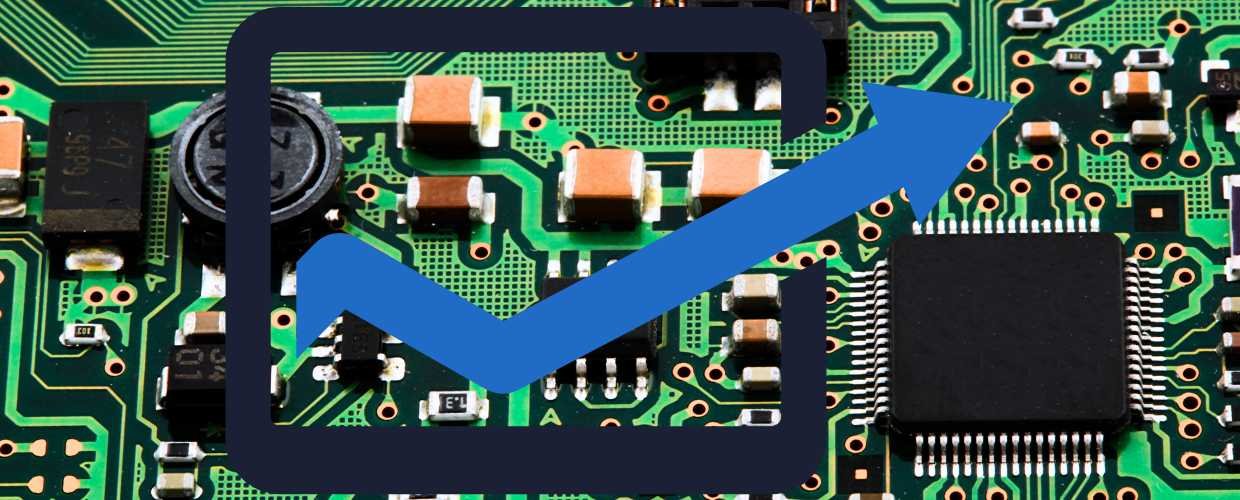In the realm of technology, Embedded Systems have emerged as unassuming powerhouses that drive many devices and processes shaping our daily lives. The Embedded Systems market has experienced remarkable growth, driven by the relentless march of miniaturization, connectivity, and the integration of intelligence into a wide range of products.
Embedded Systems Market Analysis
The Techgolly market analysis team’s preliminary estimate is that the global Embedded Systems market was valued at USD 137 billion in 2026 and is projected to reach USD 251.87 billion by 2035. Growth will continue at a compound annual growth rate (CAGR) of 5% to 7% from 2026 to 2035.

Reasons for Embedded Systems Market Growth
Embedded technology has redefined what devices can achieve, from their role in IoT devices and consumer electronics to industrial automation and healthcare. The key drivers of the Embedded Systems market are listed below.
Miniaturization and Increased Performance
The growth of the Embedded Systems market is intrinsically linked to the ongoing miniaturization of components and the simultaneous increase in computing power. Smaller form factors with improved capabilities enable intelligence integration into a wider range of devices.
IoT and Connected Devices
The proliferation of the Internet of Things (IoT) has significantly contributed to the growth of the Embedded Systems market. Embedded Systems enable devices to connect, communicate, and share data, enhancing functionality and convenience.
Consumer Electronics and Wearables
Embedded Systems have found substantial adoption in consumer electronics, including smartphones, smart TVs, and wearables. These systems power the seamless interaction and immersive experiences that users expect.
Industrial Automation and Control
The Embedded Systems market is driven by its role in industrial automation and control systems. Embedded Systems manage processes, monitor equipment, and facilitate real-time decision-making in manufacturing and other industries.
Automotive and Autonomous Vehicles
Embedded Systems play a critical role in modern vehicles, from engine control units to advanced driver assistance systems (ADAS). The growth of autonomous vehicles further underscores the importance of Embedded Systems in the automotive sector.
Healthcare and Medical Devices
The Embedded Systems market has expanded due to its applications in healthcare. Medical devices powered by Embedded Systems enable accurate diagnostics, personalized treatment, and remote patient monitoring.
Smart Home and Building Automation
Embedded Systems are fundamental to the growth of smart homes and building automation. These systems enable control of lighting, HVAC, security, and other systems to improve energy efficiency and convenience.
Energy Management and Conservation
Embedded Systems contribute to energy conservation by optimizing energy consumption in appliances, lighting, and HVAC systems. These systems enhance energy efficiency and promote sustainability.
Aerospace and Defense
The Embedded Systems market’s growth is driven by aerospace and defense applications: the systems power avionics, navigation, communication, and surveillance systems in aircraft and spacecraft.
Entertainment and Gaming
Embedded Systems play a pivotal role in gaming consoles, handheld devices, and arcade machines, providing the processing power required for immersive graphics and interactive experiences.
Key Market Players
The major Embedded Systems vendors are Intel Corporation, Analog Devices Inc., Texas Instruments Inc., Infineon Technologies AG, STMicroelectronics NV, Renesas Electronics Corporation, Microchip Technology Inc., Qualcomm Incorporated, NXP Semiconductors, and Cypress Semiconductors.





